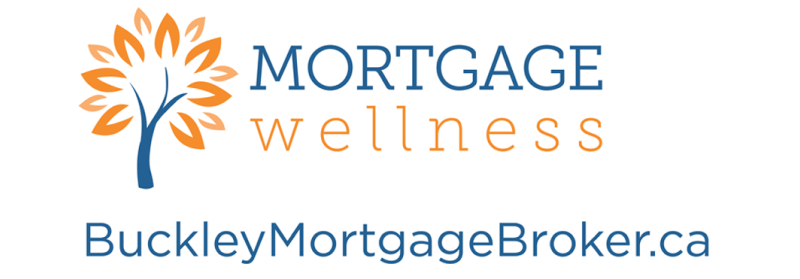Top Tips for Financing a New Home Construction
Why try to buy your dream home when you can build it for yourself? With the help of a reputable home builder, quality architect, and knowledgeable mortgage broker building your own home is possible! That being said, there is much to understand before you jump in and get started on a construction mortgage. Gerard Buckley, a trusted mortgage broker serving the Collingwood, Owen Sound and Saugeen Shores areas, is here to guide you through the process.
Learn The Building Process
Summarized, the building process looks like this:
- Discuss construction plans and financing options with a construction mortgage specialist — ideally, this person is going to be with you every step of the way
- Hire an architect and builder to draw up plans and permits for the new build
- With the help of a custom builder’s estimates and a mortgage professional’s advice, draw up a realistic budget and timeline for the financing draws
- Oversee the build to completion
- Refinance your equity construction mortgage into a conventional home mortgage with a new (typically lower) interest rate
The Financing Process
We can also break the financing process down into 8 key steps:
- Hire your contractor, get a copy of the architectural drawings, and plan out the interior and exterior design characteristics of your home
- Give this information to an appraiser who will estimate the value of the completed home
- Using the lesser of your contractor’s construction cost estimates and an appraiser’s valuation, apply for up to 80% of the total value in a mortgage
- If you are self-employed, provide prospective lenders with bank records and your company’s financial statements for the past two years
- You can apply for equity financing for residential construction if banks or credit unions say NO
- Draw a certain percentage of the funding at each level of completion, which will be pre-determined by your lender
- At the end of the build, receive any outstanding balance and holdbacks on the mortgage
- Consult with your mortgage professional and consider the outstanding debt left owing on the construction loan for a conventional mortgage loan for (typically) a lower interest rate
Understanding Building Costs
Prepare yourself for many hidden costs when embarking on a residential building project. The first major expense is the physical land upon which the home will be built which, occasionally, can be factored into the total mortgage. The rest of the costs can be broken down into hard costs (raw materials and labour), soft costs (engineering, permit and architecture fees), and allowances (flooring, backsplash, décor, etc).
These costs are the most visible, however, there are other costs and dollar figures to be aware of. Budgeting a home build is not always perfectly accurate. Expect unforeseen expenses along the way. Preparing for this with a contingency reserve is a great idea, as anything you do not spend can be put into the down payment at the beginning of the mortgage period. Aim for 10% of the initial construction costs for the amount of your contingency reserve.
Any lot equity, which is the difference in value of the loan on the land and the land’s appraised value, will typically be credited towards the down payment.
Building on rural land? There will be engineering costs such as PERC or Drainage Tests and Water Potability Tests to add to your total budget. Approvals from a local conservation authority are often required in addition to municipal building permits.
Building vs. Buying a Home
Are you considering building your home because you dream of having a house built to your exact specifications and desires? Remember — if you choose to sell the home in the future, you must keep in mind market standards and general tastes of future homebuyers. Consulting with designers before signing off on the home’s design is the best way to ensure your home will be marketable in the future.
Buying a home is great if you want to avoid the stresses of the building process — including hiring contractors. However, there can be many other hassles down the line if you are unable to uncover them before purchasing. For instance, some homes may have hidden issues such as asbestos, faulty appliances or even structural issues that will cost you time and money down the line. Building your own home ensures the appliances and home structures are new and it gives you the space and style you desire.
Understanding the Construction Financing Process
The most common mortgage type for self-build homes is the progress draw mortgage. It involves the lender providing certain amounts of the financing at various times during the build process. Financing contracts will stipulate certain percentages of the original loan amount to be paid at various levels of construction completion. Upon completion, the outstanding balance of the mortgage will be paid to the homebuyer and all money left owing will make up the conventional mortgage on the home.
To acquire this type of financing, you need to obtain the proper planning for your build. This includes hiring a qualified contractor, obtaining the architectural drawings of the home and settling on details of the exterior and interior design characteristics of the home. These must all be provided to an appraiser, who will provide an estimated value of the home. The contractor will also provide a quote for the construction costs, which will include a draw schedule that should mimic the draw schedule you receive through your progress draw mortgage.
Be aware that construction financing is based on the lesser of the market value of the home and the construction costs. If the cost of the build exceeds the home’s estimated market value, you may not be able to cover the entire home construction with a mortgage alone and may need upfront cash.
Note that interest rates for construction loans are higher than traditional mortgages. However, the rate lowers once the outstanding construction loan is factored into the home’s conventional mortgage. During the construction phase, interest-only payments are often all that is required.
Make the Right Financial Choices
Raising the right financing is not always simple. If done incorrectly, serious financial hardship is the result. Let Gerard Buckley assist you in finding the best financing option for your specific situation. With a career in finance behind him and an A+ rating from Better Business Bureau Ontario, he has the knowledge to help you make the right financial decisions the first time.
To download our White Paper on New Home Construction or for further information on Construction Mortgages, visit our Residential Construction services page.
Gerard Buckley, Mortgage Agent at Mortgage Wellness, has offices is in Collingwood, Owen Sound, Saugeen Shores and Toronto with access to over 80 specialized lenders.
Please Call Gerard at 705-532-1182 for a complimentary consultation.




